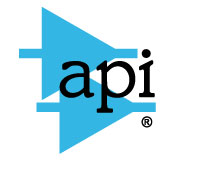

Los Angeles, California:
Long the masters of Billboard magazine's Modern Rock chart, the Red Hot Chili Peppers surprised everyone but their fans by debuting at number one on the Billboard Top 200 for the first time ever with their latest album, "Stadium Arcadium." It no doubt also came as no surprise to the man who mixed half of the double album, Andrew Scheps, who used an arsenal of API modules to bring out the best in the analog tape recordings.
Scheps, whose resume includes Johnny Cash, Alien Ant Farm, Pedestrian and Audioslave, spent the last year engineering the Red Hot Chili Peppers' tracking sessions with Ryan Hewitt, who also mixed the other half of the new album. Key to Scheps' sound is API's classic 2520 op amp, which is at the heart of the 525 Compressor, 550A Discrete 3 Band EQ and 560 Graphic EQ modules that he used liberally on all of the tracks that he mixed.
"The 525s were my main compressors for all of the main electric guitars, on pretty much every single song that I mixed," Scheps reveals. "They were just phenomenal. I don't know if it's really specific to John Frusciante's guitar tones, but they worked every single time to really bring out the guitars without making them sound compressed."
Any given song could feature anywhere from a single guitar track to thirty, he reports. "It really depended on the song. But generally there would be one or two main guitars for the track and then the rest would really be smaller overdub parts that would combine to make something bigger than everything else."
With so many component parts, Scheps utilized the 525 compressors to neatly shoehorn everything into the final mix. "John is so meticulous during tracking that it was more a question of how can I mix these without changing the sound so that it'll work better in the bigger context. The 525s were just brilliant for that. It doesn't sound processed or compressed or EQ'd too much."
Unusually, perhaps, Scheps employed a graphic rather than a parametric equalizer, preferring the surgical precision of the API 560. "Although you would think you would go with parametrics, I'll use them for surgical EQ. If I really need to get rid of a particular frequency that happens to fall where the 560 has a band, I'll crank that one down quite a bit and boost the two around it, which will tighten up the Q on the one that you're cutting. You can really do some great surgical stuff without using a parametric, which will tend to ring more."
He continues, "I like graphic EQs, and there aren't that many of them. I love the 560 just because of the way that you can hunt around and find things. The 560s are the only great sounding graphic that I use. I love the top-end. I think I used it on overheads on a few songs to really bring out the cymbals. Those were all over the mix."
As were the 550 EQ modules, he reports. "The 550s have such a character to them that you hear something and think, 'oh, that needs a 550.' In general, it was usually guitars, sometimes snare. There were a few keyboard overdubs, and I love 550s on those - mainly Mellotron stuff."
Boasting a lifetime total of an estimated 57 million albums, the Red Hot Chili Peppers have dominated the Billboard Modern Rock chart during the band's 22-year career with more number one hits and more weeks spent at the top of the chart than anyone else in the category. First week sales of 442,000 copies of "Stadium Arcadium" helped propel the band straight to the top of Billboard's Top 200 chart, becoming the first of the band's nine albums to achieve that honor.

